

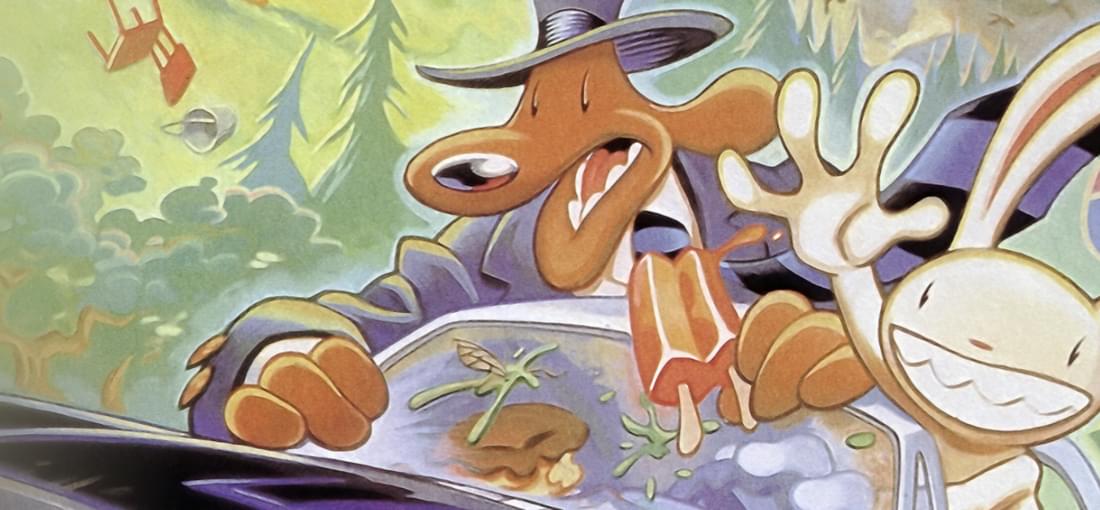
For most people, the name LucasArts almost immediately conjures up images of lightsabre duels, space dogfights, and high adventure - so some find it surprising that arguably the company's strongest point was 90s adventure games (all of which were unrelated to Star Wars). However, of the many excellent games they produced, Sam & Max Hit The Road is my personal favourite. The script is laugh-out-loud funny, briskly alternating between dry, sardonic wit and outrageous slapstick, and the voice-acting sells it completely. The colourful and cartoonish graphics have aged surprisingly well (especially compared to other games of 1993), and the puzzles are typically interesting without being frustrating - and if you get burnt out on them, you can always take some time to spend on one of the many mini-games scattered around. Sam and Max isn't a long game, but it's got a whole lot of content packed in. If you're looking for a sprawling adventure with characters that feel real, a compelling plot, and interesting themes, go pick up Gabriel Knight 1 or The Longest Journey (or Grim Fandango, which will hopefully be released here soon). But if you're looking for a quick fix that's loaded with laughs and memorable quotes, then pick this up immediately. You won't regret it.
In my review for Age of Wonders, I wrote "Anytime there's a series available on this site, you inevitably end up having to wonder if the early games are actually worth picking up, or if they're just around for nostalgia and historical interest." While the first in this series was the former, the second installment is unfortunately the latter. Everything this game does, either AoW 1 or Shadow Magic does it better. There is literally no point to buying this except for, like I said, nostalgia and/or historical interest. Even prior to the release of Shadow Magic, Age of Wonders 2 was a controversial game, with a clunky, intrusive UI, awful balance (to the point that really only four races or so were viable in multiplayer), limited map locations, and more. Some of the complaints were small (no unit descriptions - seems minor, but they were a huge part of creating the atmosphere of the first game) - others, not so much. While AoW 2 isn't necessarily a bad game, it's also a far cry from being a great TBS. AoW Shadow Magic is the game that AoW 2 should have been, and with its presence on this site, The Wizard's Throne is a waste of money.
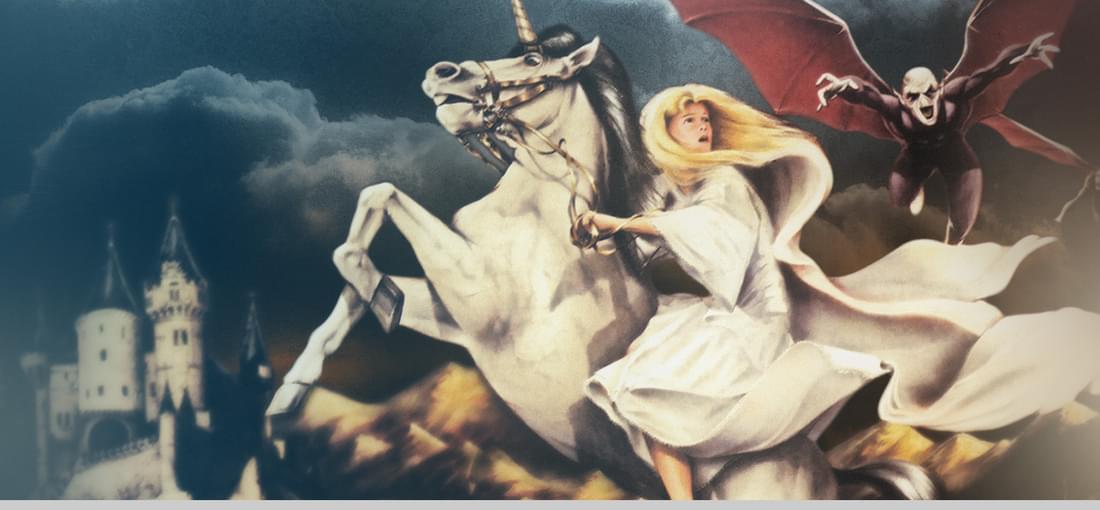
4-5-6 is a very interesting package. It contains three of the most beloved games from the venerable and long-standing King's Quest series. 4 was a great game. 6 was top-notch. 5 was... an experiment. But we'll get to that later. First up is KQ4, and I don't believe that it would be exaggerating by very much to call it the pinnacle of text-input adventure gaming. There is neither pointing nor clicking to be found here, but with a refined parser, solid puzzles, an interesting land to explore and intriguing new game mechanics such as a day/night system, this is easily a game worth exploring. It was also quite the technical marvel back in its day, with very impressive graphics for the 80s (by comparison, Ultima V was released the same year). King's Quest 5 was, as I said before, an experiment. It was a massive revolution in adventure games in general and King's Quest in particular, with a move to a much larger colour palette, full voice acting, a complete soundtrack, and, most importantly, pointing and clicking rather than the now-outdated text input. So much change in so little time is difficult to handle smoothly, however, and KQ 5 was no exception. The voice acting was absolutely abysmal (with the worst offender being the infamous owl Cedric, possibly the most annoying sidekick in the history of gaming) and the music was hit-and-miss and often grating. While the point-and-click aspect of the game worked well, the developers seemingly didn't have enough time left to devote to puzzles, and as a result the game contains some of the most baffling and illogical solutions in the series. The graphics, however, truly were a technical marvel at the time, and even today, the beautiful hand-painted backgrounds are still enchanting. In the end, KQ5 isn't a bad game so much as it was a great game that has aged very poorly. The final game, KQ6, is legendary amongst adventure gamers. Sierra took KQ5, learned from what went wrong with it, and created a top-notch game with solid voice-acting, a great soundtrack, even better artwork, and, best of all, the best puzzles in the series, many being challenging without too frustrating or illogical. Additionally, the game included multiple endings, depending on how much of it you complete. You're never really "stuck," you just risk not getting the happiest ending. This was an excellent compromise, as it removed the "unwinnable game" scenario while still giving you the incentive to do perfect. While the games herein aren't all cut from quite the same cloth, whichever one you load up will likely bring you hours of entertainment as you explore intriguing locales and push your logic skills to the limit. If you've only got time for one, though, I strongly recommend KQ6, which alone is worth the price of admission.
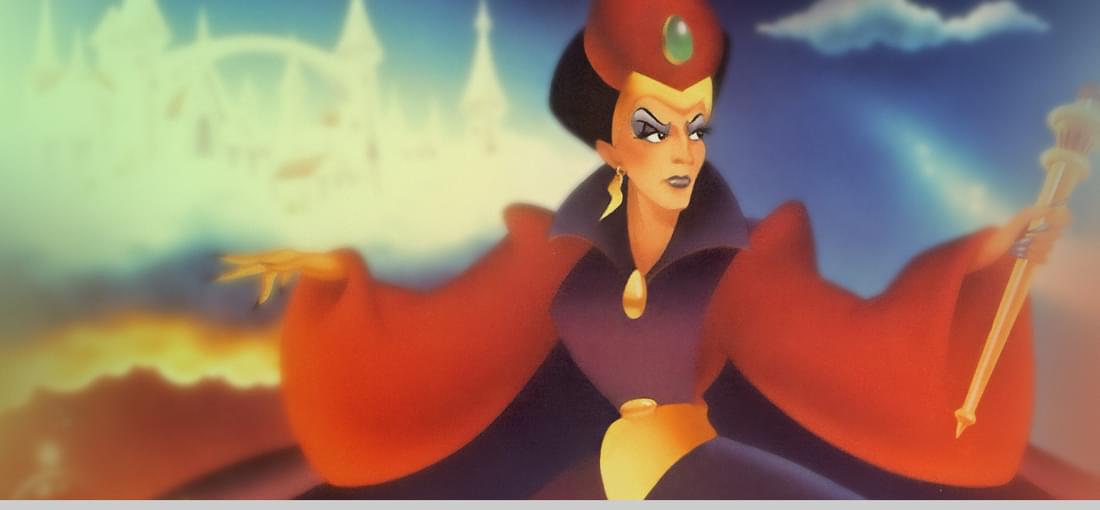
The package of King's Quest 7+8 is hardly a tantalizing purchase. Let's start with the worst of the two. King's Quest 8 is widely panned, and it deserves all it receives and more. What we are faced with here is a dull, bland action-adventure with a couple of tie-ins to King's Quest here and there. Many have complained that it isn't a King's Quest game. I would go further and say it isn't even really much of a game. Even imagining it were unrelated to the KQ series, it still wouldn't be worth picking up. Why not? A combination of many different factors. The controls are abysmal and directing Connor feels like leading around a drunken monkey with a banana. No better is the non-existent plot or the bland and empty locations that feel excessively large just to pad out the game. Combat is repetitive and unfulfilling, with AI swarming into the player's mindless clicks, what few puzzles exist are both frustrating and mindless (jumping puzzles with these controls?) and the dialogue is cheesy and stilted. Even at the time of release, the game could really only lay claim to one positive achievement, and that's relatively impressive graphics - but as you can see by the screenshots, beauty is a fleeting thing indeed. King's Quest 8 isn't even worth playing, and even should you buy this package, I wouldn't recommend opening it. By comparison, King's Quest 7 is the greatest game of the 90s. But that's by comparison to KQ 8. All things considered, KQ 7 is a rather mediocre adventure game in its own right (and as KQ7 was the first adventure game I played, all those years ago, it pains me to say that). It is in virtually every way an improvement upon its successor, with interesting locales, a coherent and even somewhat intriguing plot, better dialogue, actual puzzles that require some thought, and, ironically enough, it is much better looking - its Disney-style animation has stood the test of time much better than KQ8's "cutting-edge" 3D graphics. Still, though, it's far from perfect. Perhaps the game's most egregious flaw is being easy to the point that it feels "dumbed down." It is literally "point-and-click" in the sense that you have a magic wand that glitters over things you can interact with. Clicking on those things makes whatever needs to happen, happen. In other words, the game is quite playable by travelling around mindlessly clicking everything. The game also streamlines death, allowing you to continue from the screen before, which is a mixed blessing. First, it reduces the frustration of the "Save early, save often" gameplay from earlier KQs. However, it also removes any tension or need for preparation from the game, knowing that you can just magically respawn without consequences should your next action lead you to disaster. The final questionable aspect of the game is a more subjective matter, and that is the Disney-fication of KQ. The game has an awful lot of annoying, cartoonish characters which are often cringe-worthy and some even pushing you to get away from them as soon as possible. The ultimate problem with KQ 7 isn't that it's not a good adventure game. It is. It's just not as good as most of the other adventure games on this site, and the fact that it is coupled with the unplayable mess that is KQ8 leaves me strongly encouraging adventure gamers to spend their hard-earned money on other titles here, and to only come back once they've exhausted other options or if playing KQ 1-6 has left them jonesing for some more.
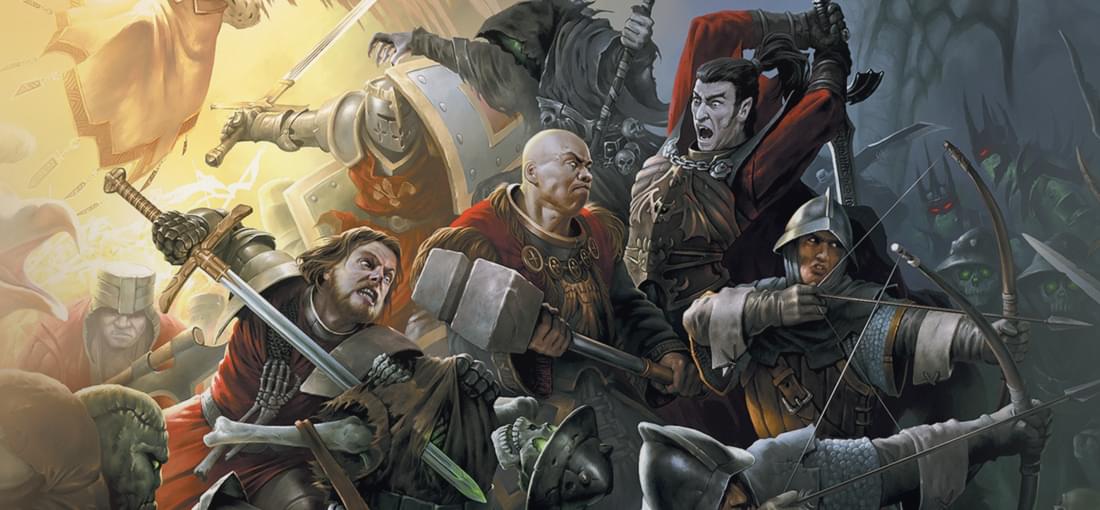
I'll start by saying the same thing that no doubt most of the reviews for this game will say: Heroes 5 is not Heroes 3. That being said, it sure does try hard to fool you. That might be unfair, as HOMM 5 isn't openly deceptive. Rather, it's a repackaging of many of the core gameplay mechanics from the series' perennial instalment with a few updates. Considering the controversy that erupted over Heroes 4, this will likely come as a relief to a lot of Heroes fans, however the question remains: Is it worth purchasing? To its credit, the game does offer some solid improvements over Heroes 3. Most notable is the skill system, which allows each hero to take three "sub-skills" for every secondary skill. So for example, skills such as Navigation and Scouting are now sub-skills of Logistics, allowing the player to pick those skills when necessary without having to miss out on other secondary skills. This adds a new level of depth to hero development and helps balance out the skill trees a bit. Adding to the flavour, each town now has it's own unique special ability. The Necromancers can raise the dead, of course, while the Haven can train lower level units up to higher levels for a fee, and the Inferno can summon in reinforcements who disappear at the end of battle. Some of these abilities become very interesting, such as the Academy who can create artifacts to enchant their soldiers. This diversifies the towns and allows for more strategic options. The Tribes of the East expansion also adds alternate upgrades for every unit, and while the distinctions are usually fairly minor, this still adds an additional layer of strategy to the recruitment process. For example, when upgrading your Archers, you can choose either the Marksman, who ignores enemy defense at close range, or the Crossbowman, who ignores range penalties. Not everything about HOMM 5 is good, though. First, and most notable, is the campaign. The quality of the voice-acting, story, and cutscenes is painful at times, but more noticeable is the bizarre change of setting. Fans of both the HOMM and M&M series will be disappointed to find themselves transported into a much more generic fantasy world, that at times feels like Warcraft-lite. Distinctive factions, such as the collection of subterranean monsters that was HOMM 3's Dungeon, or the mysterious swamp creatures of the Fortress, have been replaced with the standard fantasy fare of Dark Elves and Dwarves (respectively). While this might seem like a cosmetic change, atmosphere is a significant part of fantasy TBS, and the series lost a great deal of its charm with this instalment. Conversely, aside from the special abilities, many of the towns themselves have an awfully familiar ring to them. Specifically Haven, Academy and Necropolis are nearly identical to their HOMM 3 counterparts, while Sylvan seems suspiciously similar to HOMM 2's Sorceress town. As a result, many of the towns end up feeling rehashed from past games, just more dull. Additionally, the new "Town Points" system, in which each building requires a certain amount of other buildings to be built first. For example, the Castle, Capitol and top tier creature dwelling each require 15 points, and so likely will not be available until late second or early third week. This may seem balancing, but in the end it only forces players to adapt the same build orders over and over again, rather than allowing them to diversify between economic and military development depending on the situation. The 3D is no doubt a controversial decision as well. While I never had an issue with it, some have found that it makes the game too clunky. All in all, however, even though Heroes 5 has its flaws, and hasn't quite got the same depth or level of immersion as Heroes 3, its core gameplay is nonetheless still quite enjoyable, and fans of fantasy TBS would be doing themselves a favour to pick it up. Long-time Heroes fans, if they are able to look past the butchering of the game world and a few issues here and there, will end up finding the same classic gameplay that they grew to love, with a few tweaks and improvements that they may come to appreciate.
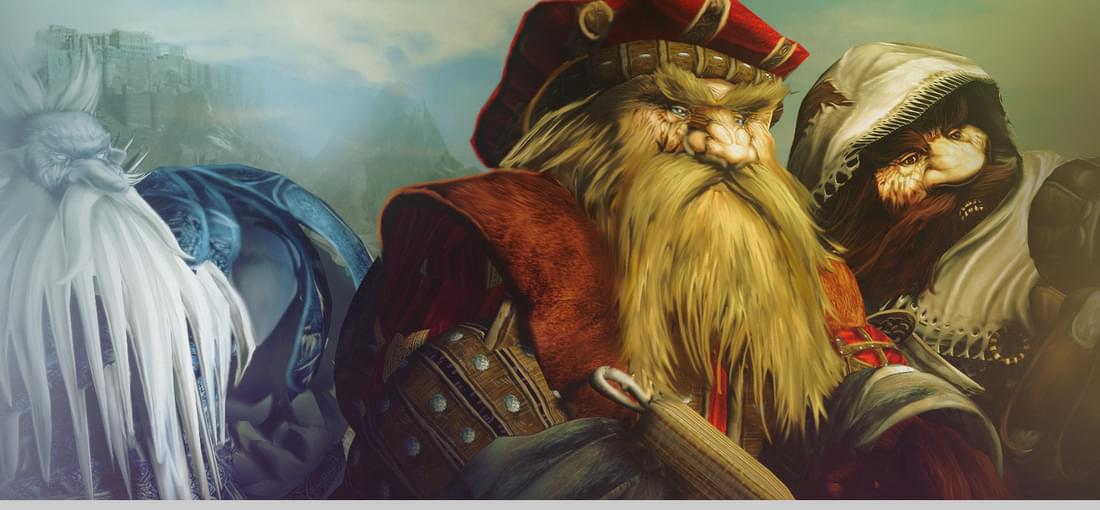
The big problem with trying to make it in the TBS market is that there isn't a lot of space left. What with the early giants of the genre (games like Master of Orion, Master of Magic, and Civilization) still casting their shadow over modern releases, and the more recent titans like Age of Wonders and Heroes of Might and Magic dominating most of the field today, it can be a tough place to carve out a name for yourself. Disciples 2 attempts to do so, however, and for the most part it succeeds. Nevertheless, a few shortcomings prevent it from being placed with the best of the best of the genre. Disciples 2 takes place in a dark fantasy world, revolving around the conflicts of five different races (Humans, Elves, Dwarves, Demons, and Undead). Players then recruit heroes which can be used to lead their armies around the map, exploring, gathering resources, and fighting enemies. It's hard not to think of the Heroes of Might and Magic series when hearing this formula, but Disciples puts enough of it's own spin on things to make it more worthwhile. First, the player is prompted to choose a "class" for their leader. The leader does not feature in the game itself, but rather has certain bonuses that contribute to the overall governing of the race. Units fighting under the Warrior Lord, for example, heal faster, while the Mage Lord can cast the most powerful spells, and the Guildmaster has more options for espionage and subterfuge. Each leader, in turn, relates to a class of hero - one warrior type, one mage type, and one rogue type - that each has unique advantages and disadvantages. However, while players are restricted to only one leader class per game, they can recruit any hero class. In addition to heroes, each side has two other units they may recruit: a resource gatherer, who can travel the land claiming mines and mana sources, and a thief, who can scout, spy, and conduct espionage missions on enemies. Beyond this, each hero is able to recruit up to five soldiers into their armies. Like heroes, these units come in different classes: Fighter units, ranged units, magic units, support units and giant units. The first three are relatively self-explanatory, the fourth is a fairly wide open category. For example, the Human support unit is a healer, while the Demons get a large, powerful fighter that takes up two army slots. The giant unit is a special type that begins very powerful, but cannot be upgraded. Upgrades play a very important role in the game. Every unit gains experience points, and when they get enough, they upgrade to the next tier. What they upgrade to is determined by which buildings are purchased in the capital - units often have two or more upgrade paths, and it's up to the player to decide which seems more useful. For example, the humans have the Squire, which can upgrade into either a Knight or a Witchhunter. The Knight path allows more options for future upgrades, while the Witchhunter is immune to some of the more devastating abilities of other races. Once you choose one you can't go back, so this becomes an important strategic decision - in this case, can you leverage the Witchhunter's immunities to gain enough early advantage to outweigh the lack of upgrade options later on? Other choices are a bit more straightforward, but no less difficult - the Empire's healer, for example, can upgrade to either heal one ally for a large amount, or all allies for a small amount. These decisions add a large amount of flavour to the game's strategy and lend the game depth - when your units reach the point where they are ready to upgrade, which path to choose can become a nail-biting decision. The combat was initially off-putting as it seems pretty shallow. There is no tactical field, but instead your units are arranged in formation pre-combat and you decide who attacks what. No mistake, there is some strategic depth to be found there, in terms of formation, special abilities, and so forth, but tacticians will find it a bit unfulfilling. The magic system, while similarly simplistic, fares much better. Spells can only be cast on the overworld and are, for the most part, limited to four categories: Buff, debuff, direct damage, and summoning. However, mana is often difficult enough to come by that each spell researched and cast can be a difficult decision, and effective use of magic can easily change the outcome of a coming battle. Perhaps Disciples II's greatest strength is in it's scenarios. The maps you'll play will rarely focus on all-out slugfests, instead each game having it's own, unique objectives. One of my personal favourites involved a scenario where the Demons invaded the Elven lands. The Elves, unable to hold, retreat through the Dwarvern lands, but the Dwarves assume the Elves are invading and so start attacking them. In this map, the Demons must bring a hero to magical pillars scattered around the map in order to destroy the forest with fire, the Elves have to bring certain special units to an objective point in order to escape, and the Dwarves have to use a thief to poison both enemies' water supplies, so that they'll have to withdraw. Whoever completes their respective objective first wins. No map plays the same way, and it's a refreshing challenge to have to try and compete your objective while trying to prevent your enemy from reaching theirs. The game's biggest flaw, however, is it's lack of diversity. With only five races (and that's with the expansion) and a handful of map locations to explore, TBS fans might find they've explored all the options within a relatively short amount of time. There's still hours of enjoyment to be had here, make no mistake, but in comparison to game series like Heroes of Might and Magic or Age of Wonders, one can't help but feel that there could have been more content. And that's ultimately the game's shortcoming. Is it an enjoyable strategy game? Yes, no question. Is it on the same level as some of the other fantasy TBS games on this site? Sadly, no. There's a lot of fun to be had here, and anyone burnt out on AoW and HOMM and MoM but still hungering for fantasy TBS goodness should look no further than here. In short, Disciples 2 is an excellent game, but one that sadly barely falls short of being a must-buy and as a result should sit a bit lower on your priority list.
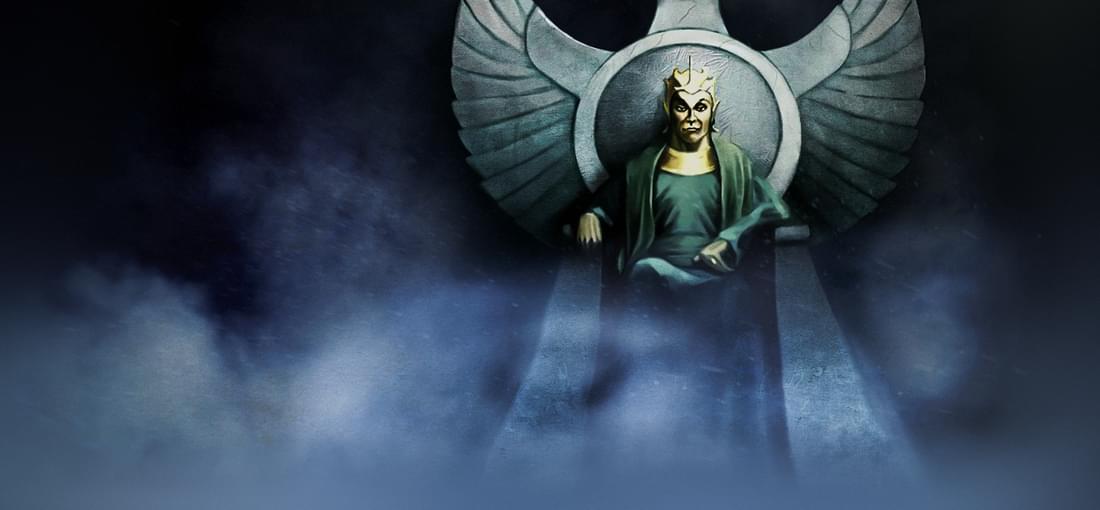
Anytime there's a series available on this site, you inevitably end up having to wonder if the early games are actually worth picking up, or if they're just around for nostalgia and historical interest. This game, however, is the former, and is distinct enough from the sequels that you'll still get a lot of mileage from it even if you've played them to death. It is not only worth your time, but is easily one of the best games you can pick up on here if the TBS genre interests you at all. The game is set in a typical, Tolkien-esque fantasy world, with twelve different races battling for dominance, including the usual suspects (Elves, Dwarves and Goblins) as well as less stereotypical fare (Frostlings, a race of dimunitive warriors from the northern climates, and Lizardmen, amphibian savages who feature aquatic siege weapons). You command the leader of one of these races, trying to establish your own dominance through magic, diplomacy, and sheer brute force, recruting a vast army of common soldiers, elite warriors, and fantastical beasts, each with their own unique statistics and abilities. Spells range from minor enchantments to improve your units, to summoning forth impressive creatures, to bombarding a battlefield with massive hailstones, to raining fire down upon an entire city, to flooding the entire world and watching as cities are isolated and armies drown. Each spell is accompanied by effects that were impressive at the time and still entertaining even twelve years later. If it sounds a bit similar to Master of Magic, that's because it is. Many of the elements that made that game great are present here - diverse fantasy races, each of which provide a different experience; a robust magic system; compelling tactical combat; each of these form an essential part of Age of Wonders, and if you enjoyed MoM, then this game is a no-brainer. What Age of Wonders lacks in creativity, though, it more than makes up for in atmosphere. The world is beautifully hand-drawn, with each unit, location, and event illustrated with detailed portraits that evoke the world which they are a part of. Adding to the immersion are in-game descriptions of each unit, and it can sometimes be easy to forget that you're playing a game and not peeking through a window into a living, breathing fantasy world. The level of detail is astounding, right down to little emblems of the race being painted on the infantry. Arguably the game's greatest strength, however, is the combat. While the game provides an option for automatically resolving fights, the tactical battles are so compelling that you will often find yourself choosing them even for minor skirmishes. The game will come alive as you guide your army through battles both large and small, some so epic that you'll swear they were from a book or movie when you think about them afterwards. It's not uncommon to feel emotionally drained after barely surviving a siege, or making a last-ditch calvary charge that ends up breaking through. Despite all this, Age of Wonders is not without its problems. Perhaps the biggest issue is balance: While the races themselves are quite well balanced, heroes can become overwhelmingly powerful to the point where they can slaughter entire armies without a scratch, and even the most powerful race can be easily eliminated by assassinating their leader. Fortunately, leaders can be turned off, which also helps the first problem as it takes longer and more effort to develop a hero into a killing machine than it does a leader. However, when leaders are turned off, you then have to hunt down and kill every last unit, which can be tedious in its own right. Despite these flaws, Age of Wonders is easily one of the most compelling and enjoyable TBS games to be released, and any fan of the genre is sure to get hours upon hours of enjoyment from it.